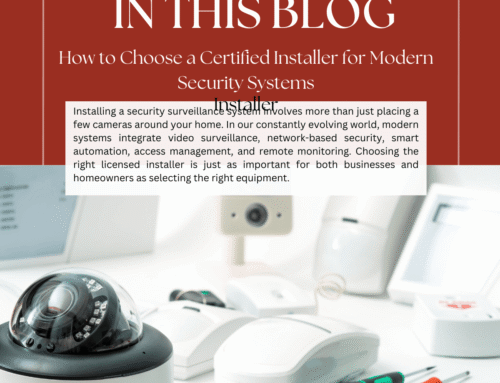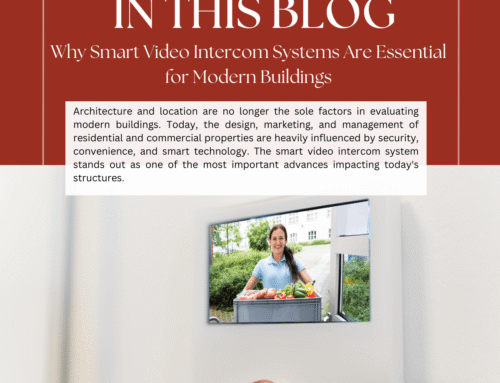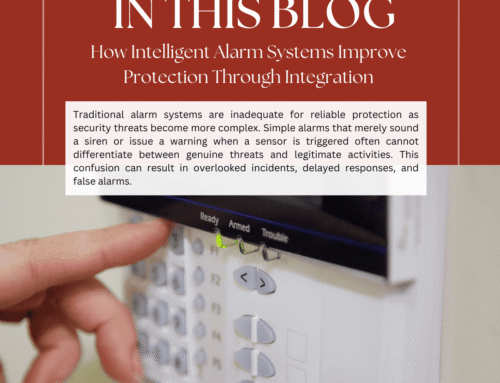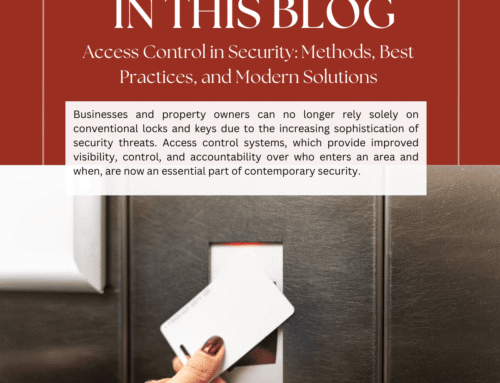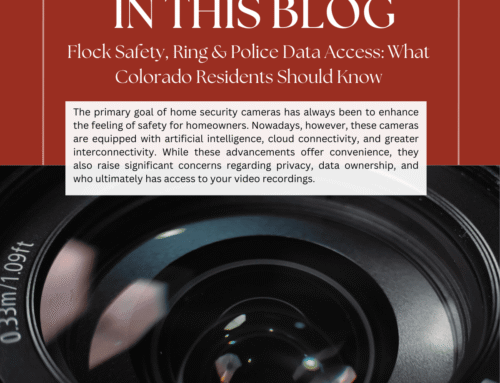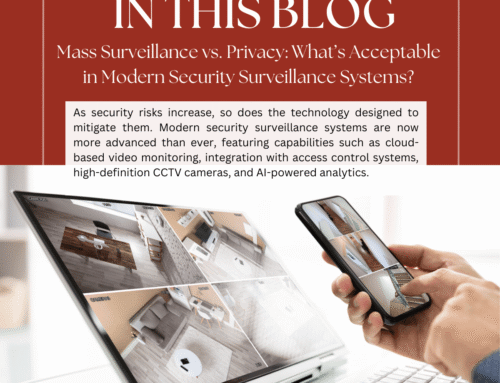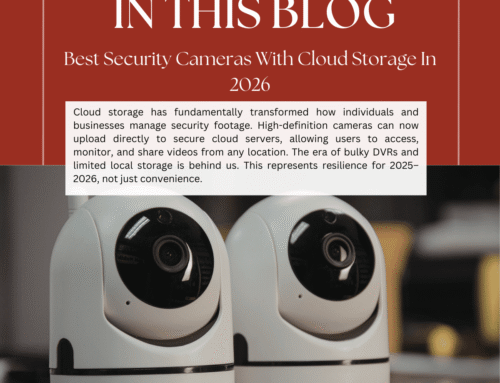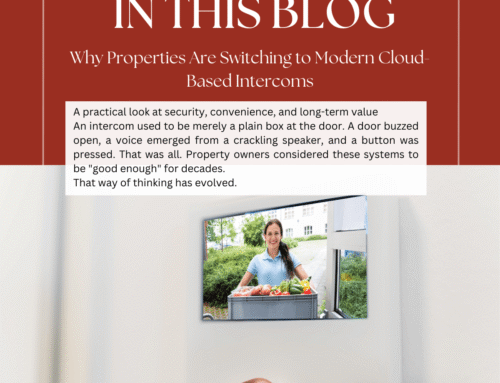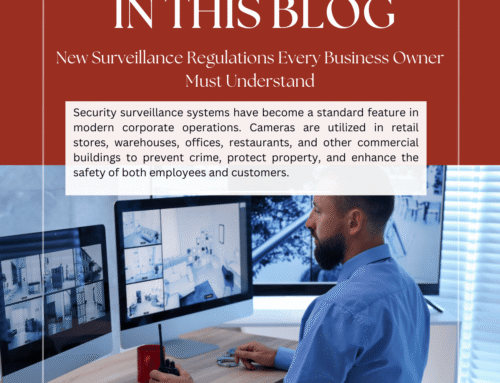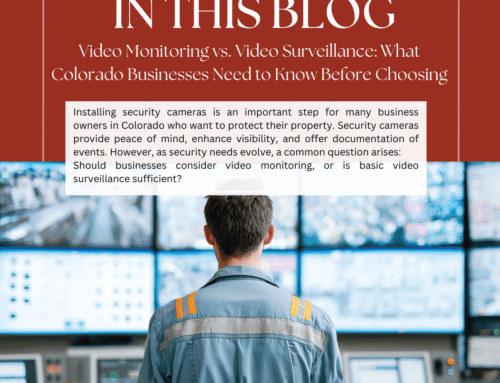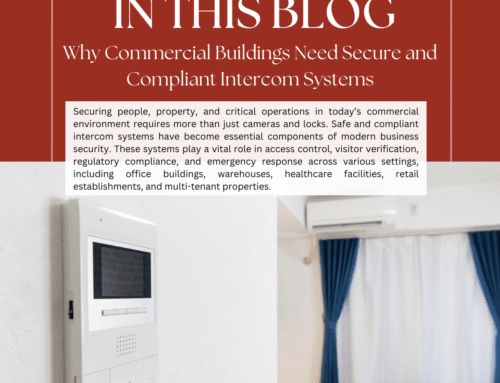Residential vs. Commercial Access Control: What’s the Difference?
In today’s vigilant world access control systems are no longer restricted to large businesses or high-end security buildings. The right access control system may provide you with genuine safety and peace of mind, whether you’re guarding a house or a business.
What Is Access Control?
Access control limits who can enter and leave, a, room, building, or any property. These systems use advanced technology such as keypads, smart cards, biometrics, or mobile credentials to replace or improve conventional locks and keys.
There are multiple different types of access control for both homeowners and businesses, such as:
- Mandatory Access Control (MAC)
- Discretionary Access Control (DAC)
- Rule-Based Access Control
- Role-Based Access Control (RBAC)
Residential Access Control
Although some features a card credential option, PINs are often utilized by door readers in residential applications to limit entrance. A four- or five-digit number is issued to the user, who inputs it into the reader’s keypad. Compared to the systems used in commercial applications, this method is generally less secure.
The security requirements for residential properties concentrate on safeguarding family members and personal property. In order to create a convenient experience, homeowners frequently give priority to systems that are simple to use, reasonably priced, and compatible with their current house. Burglary, theft, and vandalism demand building/house owners to install a security system that handles their concerns.
Objectives and designs
Residents who want to secure entry points like front doors, garages, or gates can use the system designed for residential properties. Convenience, easy to use, and simplicity are the main goals of these systems.
Common Features for Residential System
- Keyless access (using a fob, smartphone, or PIN code)
- Integration with smart gadgets.
- Remote access using mobile application;
- Integration with video doorbells or intercoms;
- Typically installed on a smaller scale, often involving one or two access points.
Perfect for: single family residence; apartments or condos; gated communities
Advantages are: enhances privacy; real time notifications and remote monitoring; convenience for family members or guests.
Commercial Access Control
Commercial door readers are often supplied with cards or other credentials; however, they can be obtained with simply a pin key. In addition to card credentials, you may choose mobile credentials that link to your smartphone via Bluetooth or biometric door scanner.
On the other side, businesses have distinct demands and frequently priorities larger scale assets, personnel, and intellectual property protection. An advanced and all-inclusive solution is a commercial security system. Complex security solution, such as layered protocols, are needed for multiple entry points and employee authorization. To prevent and reduce theft, vandalism, hacks, and liabilities, business require security solutions.
The access control system may be expanded to include lift access controllers and apartment intercoms, giving commercial premises a comprehensive security system.
These reader-controllers are designed for use in applications involving hundreds of users and multiple doors.
Objectives and Designs
Businesses that need more sophisticated and scalable security are the target audience for commercial solutions. These configurations manage several users, zones, and access levels.
Common Features for Commercial Security System
Security for server rooms and restricted areas; audit trails and entry logs; multi-door access control; role-based access right (e.g., employee, manager, contractor); integration with time tracking or HR systems; and emergency lockdown capabilities.
Perfect for: office buildings; distribution and warehouse facilities; government, medical, and educational; institutions; and retail establishments.
Advantages are: increase operational effectiveness; better data and property security; adherence industry standard; better management of large employee groups and foot traffic.
What Is the Ideal Access Control System for You?
One way to regulate who may enter a building is through access control system. They are utilized in variety of settings, including as workplaces, co working spaces, medical facilities, homes, and many more. To make sure you select a solution that fits your unique demands, there are a number of elements to take into account. What kind of establishment do you want to safeguard? How many individuals will require access? Would you prefer that they use cellphones or keycards to unlock doors? You can choose the best solution for your use.
At security surveillance system, we assist customers in Colorado, including in Denver, Aurora, Lakewood, Boulder and beyond, in selecting the best kind of access control for their particular requirements.
We’ll assist you in finding a simple and efficient solution if you’re a homeowner. We can provide a complete scalable, integrated system for facility managers and company owners to safeguard your clients, staff, and assets.
Frequently asked questions (FAQs)
- What is the main type of access control system?
Answer: There are four types:- Discretionary access control (DAC): owner- defined permissions.
- Mandatory access control (MAC): centralized and rule-based, used in high-security environments.
- Role-based access control (RAC): access is based on the user’s role (e.g., Employee vs. Manager).
- Rule-based access control: uses conditions like time of day or location.
- How much does commercial access control cost?
Answer: Complexity and scale determine this. While bigger institution could invest more in integrated, multi-layered security, small firms might utilize less expensive solutions. - Is it possible to switch from a residential to a business system?
Answer: Of course, as demand develop, many of our clients scale up from basic system. We provide adaptable, cutting-edge access control systems. - Are security cameras compatible with access control systems?
Answer: Indeed, a lot of systems easily connect to security cameras, giving you real-time access control over who enters and leaves. - Are my current security cameras compatible with access control?
Answer: Indeed, our specialty at Security Surveillance system is completely integrated solutions. For complete security, your access control system may cooperate with your motion sensors, alarms, and surveillance cameras. - Does my small business need access control?
Answer: Indeed. Access control is helpful even for small workplaces or retail establishment. It keeps tabs on employee access; safeguard private spaces, office or stockrooms; and refrain from rekeying locks when employees leave. - Is residential access control expensive?
Answer: Not often. In addition to being fairly cost-effective, entry level systems such as video doorbells, keypads, and smart locks provide a significant security improvement over conventional locks.We at Security Surveillance System provides the best access control system tailored to your property needs. Whether it’s your home or business, we offer customized installation solutions to keep your property secure–your way.
Contact us at www.ssscamera.com to safeguards what matter the most.



